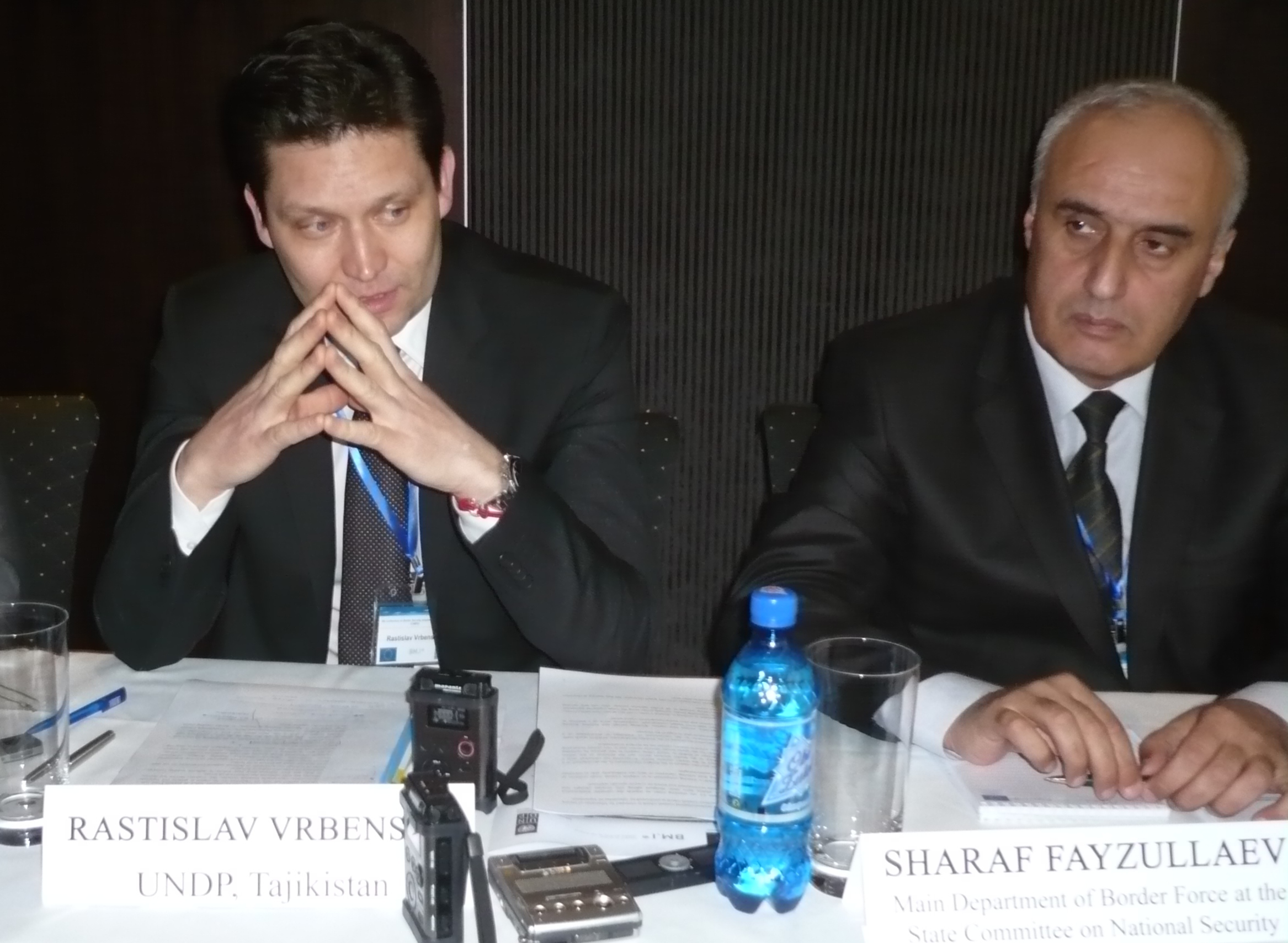DUSHANBE, March 15, 2011, Asia-Plus – Afghan border service is small and not able to control all stretches of Afghanistan’s common border with Tajikistan, and therefore, we call on international community to help Afghanistan strengthen border management and control, Sharaf Fayzulloyev, the first deputy commander of Tajik border troops, told reporters in Dushanbe on March 15 on sidelines of the ninth conference of the Central Asia Border Security Initiative (CABSI).
According to him, Afghanistan needs international support for development of its border service, which is still at the stage of formation.
“If the Afghan side does not control border properly, we will have a sticky time. Tajikistan has been doing what it can to help Afghan border guards. Training courses are organized for Afghan border officers in Dushanbe in cooperation with international partners,” Fayzulloyev said.
He noted that Tajikistan also needed support for strengthening border management and control. “The situation on the Tajik-Afghan border remains complex and it is very difficult provide proper border control without support of other countries,” the high-ranking official of Tajikistan’s border service said, adding that stability in the Central Asian region depends to a large extent on security on the border.
“When the task of guarding the Tajik-Afghan border was handed over to Tajik border troops in 2005, we inherited an obsolete infrastructure. The border units deployed along the Tajik Afghan border were built during the period from 1928 to 1966 already. They are unsuitable to rehabilitation and we have to build new frontier posts. Our vehicles have also outlived their service life,” said Fayzulloyev, “We are holding meetings with partners to solve these issues. We would like to solve these issues as soon as possible, because the situation on the border remains complex and we need assistance now but not in ten years.”
Sharaf Fayzulloyev also noted the Government of Tajikistan last year developed the plan of actions to provide border security for the period until 2025. “Considerable funds are needed for implementation of this plan. Several dozen million dollars are needed annually,” he stressed.
Fayzulloyev noted that Tajikistan has yielded progress in training of personnel for its border troops. “Three years ago, some 70 percent of Tajik border officers did not have proper education, while today, all of them have proper education,” he said, noting that personnel for Tajik border troops are being trained both in Tajikistan and in Russia and Kazakhstan.
He also noted the Tajik-Afghan border is now fully provided with modern communications means due to support provided by the United States.
Asked about the possibility of return of Russian border guards to the Tajik-Afghan border, Fayzulloyev noted that Russian authorities have never raised the issue of return Russian border guards to the Tajik-Afghan border. “Ongoing consultations on making amendments to the border control cooperation agreement between Tajikistan and Russia do not provide for increase in presence of Russian border guards in Tajikistan,” said Fayzulloyev, “We are able to control the Tajik-Afghan border by ourselves.”
We will recall that a two-day conference of the Central Asia Border Security Initiative (CABSI) convened to discuss border security and cross-border cooperation in Central Asia commenced in Dushanbe on March 15.
The conference brought together national counterparts from Kazakhstan, Kyrgyzstan and Tajikistan, EU Member states’ representatives, high-level representatives of the European Commission, European Union Delegations’ Heads in Central Asia, members of the international donor community and agencies involved in border security technical assistance, such as the OSCE, UNODC, IOM, the Russian Federation, the United States, China, Japan and other stakeholders to share best practices and coordinate efforts.
Amongst other important issues, the conference participants discussed cooperation of Central Asian states with international partners, trade facilitation in Central Asia, as well as procedures and standards in border management implementation.
Effective border security, facilitation of licit trade and transit, and the fight against drugs trafficking are major challenges for Central Asian countries, and their effects have a direct impact on the European Union (EU) and its 27 Member States.
CABSI brings together EU Member States led by Austria, including Finland, France, Germany, Poland, Estonia, Latvia, Croatia, Hungary and the United Kingdom, and the USA as an associate partner, the European Commission, UNDP, ICMPD, other international organisations with representatives of the countries of Central Asia.
The aim of CABSI is to steadily develop a comprehensive and sustainable integrated border management approach in Central Asia in order to improve border security, facilitate trade and promote economic development. The approach will greatly contribute to the prosperity, stability and security in Central Asia, and supports the EU Strategy in Central Asia.
Within the framework of the EU-UNDP BOMCA assistance program, the European Union helps in fostering institutional reform in border management, strengthening training capacities in Central Asia and supporting the improvement of infrastructure along the trade and transit corridors in Central Asia.




